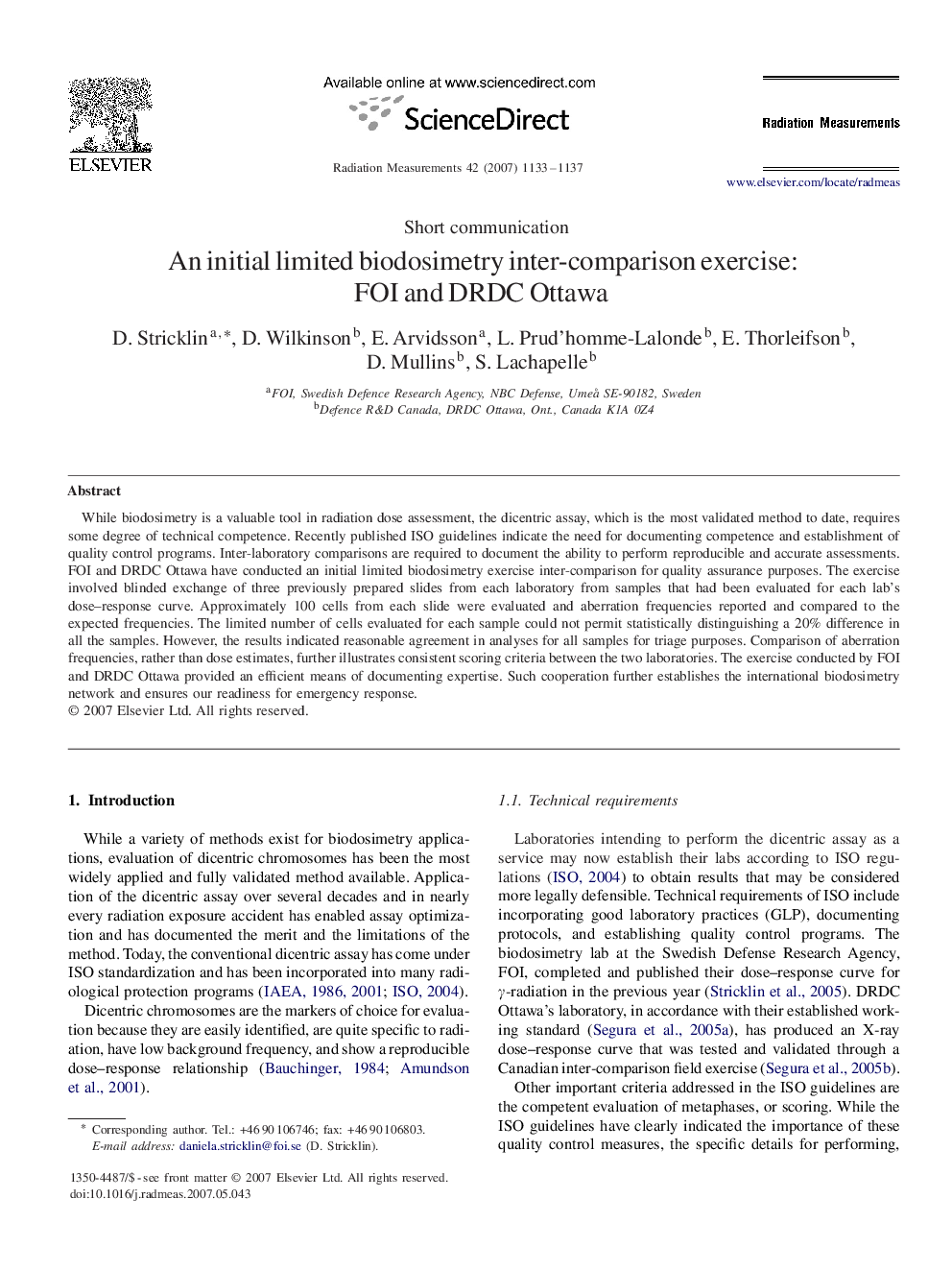| کد مقاله | کد نشریه | سال انتشار | مقاله انگلیسی | نسخه تمام متن |
|---|---|---|---|---|
| 1888995 | 1533449 | 2007 | 5 صفحه PDF | دانلود رایگان |

While biodosimetry is a valuable tool in radiation dose assessment, the dicentric assay, which is the most validated method to date, requires some degree of technical competence. Recently published ISO guidelines indicate the need for documenting competence and establishment of quality control programs. Inter-laboratory comparisons are required to document the ability to perform reproducible and accurate assessments. FOI and DRDC Ottawa have conducted an initial limited biodosimetry exercise inter-comparison for quality assurance purposes. The exercise involved blinded exchange of three previously prepared slides from each laboratory from samples that had been evaluated for each lab's dose–response curve. Approximately 100 cells from each slide were evaluated and aberration frequencies reported and compared to the expected frequencies. The limited number of cells evaluated for each sample could not permit statistically distinguishing a 20% difference in all the samples. However, the results indicated reasonable agreement in analyses for all samples for triage purposes. Comparison of aberration frequencies, rather than dose estimates, further illustrates consistent scoring criteria between the two laboratories. The exercise conducted by FOI and DRDC Ottawa provided an efficient means of documenting expertise. Such cooperation further establishes the international biodosimetry network and ensures our readiness for emergency response.
Journal: Radiation Measurements - Volume 42, Issues 6–7, July–August 2007, Pages 1133–1137